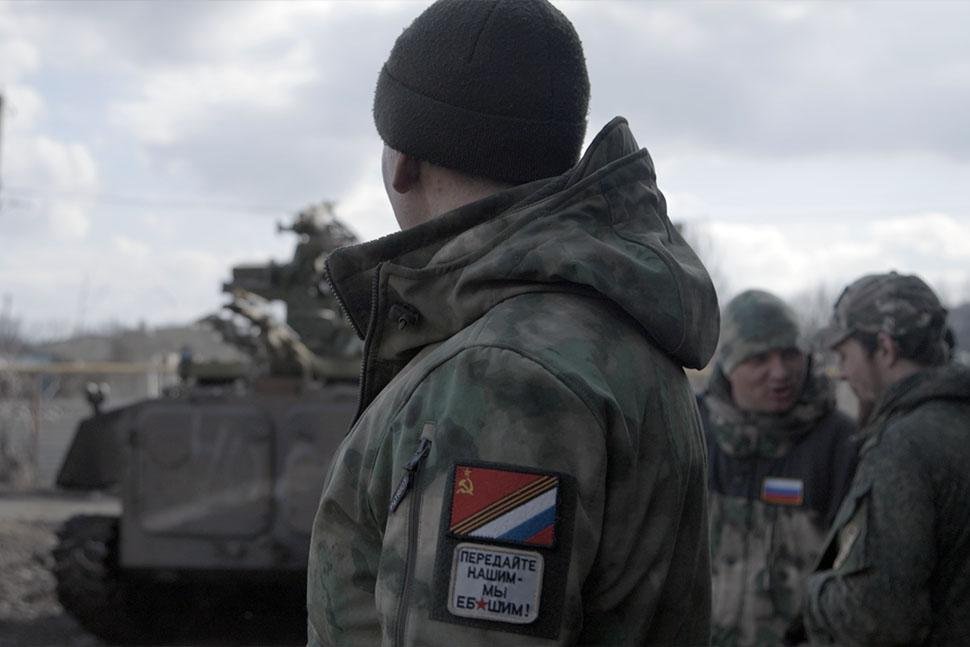
A screenshot from the film provided by the Venice Film Festival.
A documentary by Russian-Canadian filmmaker Anastasia Trofimova that was screened as part of this week’s Venice Film Festival has caused outrage in Ukraine, where one senior official branded it a “propaganda film”.
Ahead of the premiere of Russians at War, Trofimova said that her goal in making the film had been to “attempt to see through the fog of war and see people for people”, Reuters reported.
Trofimova added that she had been shocked to discover that Russians fighting in Ukraine were “absolutely ordinary guys with families”, many of whom denounced Russian state media reports on the war as “lies” and were growing increasingly disillusioned as the war dragged on.
However, the film has come in for harsh criticism for its lack of focus on Russian war crimes in Ukraine and for failing to show the consequences of the Russian invasion on Ukraine’s civilian population.
Trofimova said she had not seen any signs that war crimes had been committed during her time near the frontline in Ukraine, where she says she worked without authorisation.
In a statement on Saturday, the Ukrainian Foreign Ministry called the documentary “an insult to the victims of Russia’s war against Ukraine”, adding that the film “misrepresents the realities of Russian aggression and serves as a tool for Kremlin disinformation”.
Ukrainian President Volodymyr Zelensky’s top aide Andriy Yermak said it was “disgraceful” that a “propaganda film” had been shown at the festival.
Others, including Ukrainian Consul General in Toronto Oleh Nikolenko, have pointed to Trofimova’s past work for Russian propaganda channel RT (formerly Russia Today) in Syria and the Democratic Republic of Congo.
Nikolenko strongly opposed the decision to screen the documentary at this year’s Toronto Film Festival (TIFF), which began on Thursday, accusing Trofimova of violating Ukrainian law by embedding herself with Russian forces who had invaded Ukraine.
Meanwhile, the Ukrainian Canadian Congress (UCC) accused the Canadian Media Fund of using taxpayer money to fund the film, which it said portrayed “Russia’s genocidal war of aggression against Ukraine as a ‘nefarious game’”, calling on TIFF to cancel the screening of the film.
The UCC also quoted a previous description of the film at TIFF, which has since been removed — “As the war in Ukraine rages on, it is easy to forget that this is ultimately a story of brother against brother” — calling it “indicative of the willingness of TIFF to engage in moral equivalency between an innocent nation and genocidal invaders”.
In a statement to AFP on Saturday, Trofimova rejected the claims that her film had promoted Russian propaganda narratives. “I want to be clear that this Canada-France production is an anti-war film made at great risk to all involved, myself especially,” Trofimova stated, branding the accusations “ludicrous” and claiming that she was now “at risk of criminal prosecution in Russia”.
Trofimova stressed that she “unequivocally” believed that the Russian invasion of Ukraine was “unjustified” and “illegal” and acknowledged “the validity of the International Criminal Court investigation of war crimes in Ukraine”.
